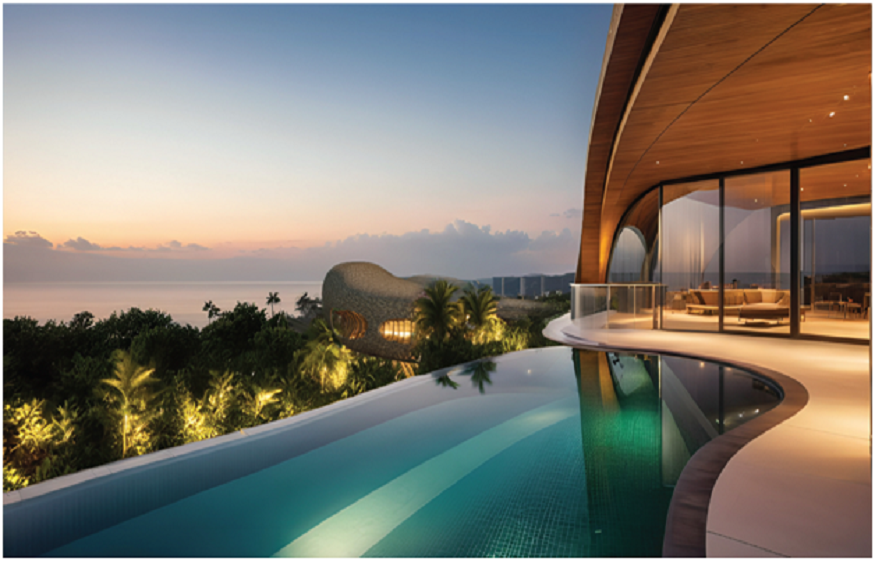The global hospitality sector is experiencing a resurgence, and hotel investment is once again a top performer for property investors seeking high yields and asset-backed income. In 2025, the hotel investment market is booming across key Asia-Pacific destinations, including Bali, Thailand, and Australia, thanks to record-high travel demand, strong RevPAR recovery, and evolving investor models such as fractional ownership.
From branded suites to lifestyle resorts, opportunities in the hotel sector are attracting everyone from institutional players to SMSF investors. Here’s a closer look at the hotel investment market, why it’s thriving, and how Australians can participate.
What Is Driving Growth in the Hotel Investment Market?
Following the pandemic-induced slump, hotel assets have bounced back with remarkable resilience. According to recent data from JLL, global RevPAR (Revenue Per Available Room) reached between 94% and 121% of 2019 levels by the end of 2023. In Asia Pacific, full recovery is expected by Q1 2024.
Investor appetite has returned, buoyed by:
- Surging tourism and ‘revenge travel’
- Strong average daily rates (ADRs)
- Expansion of luxury and lifestyle hotel brands
- ESG and wellness trends influencing travel choices
- New ownership models offering access to more investors
Benefits of Investing in Hotel Real Estate
Hotel investment is about more than just bricks and mortar—it’s about generating diversified income from hospitality operations. Unlike residential property, hotel assets generate revenue from multiple channels.
1. Higher Rental Yields
Hotels typically produce higher yields than long-term rentals. Investors benefit from daily bookings, seasonal pricing, and add-on revenue from dining, events, and wellness services. Returns on well-positioned hotel suites range between 10–18% net annually in markets like Bali or Phuket.
2. Professional Management
Hotels are operated by professional brands or management companies. This ensures that operations, guest services, and marketing are handled efficiently—ideal for passive investors who want income without landlord responsibilities.
3. Resilience Against Economic Volatility
Luxury and budget hotel segments tend to be more resilient than mid-market residential properties. During global shifts, travellers may downgrade from luxury hotels—but rarely stop travelling altogether.
2025 Trends in the Hotel Investment Market
1. Branded Residences and Suites
The line between hotels and residential property is blurring. Investors are buying hotel-branded residences and suites that offer both lifestyle access and rental income.
Geonet Properties, for example, facilitates access to branded hotel investments in Bali through fractional ownership or turnkey suites—allowing Australians to co-own high-yield assets in tourism hotspots.
2. Wellness and ESG-Driven Resorts
Travellers are increasingly selecting stays based on values. Hotels that integrate sustainability, wellness amenities, and social responsibility are outperforming. Properties with:
- Eco-conscious design
- Onsite yoga and spas
- Organic food offerings
- Low-emission practices
…are attracting both premium guests and conscious investors.
3. New Investor Models: Fractional and SMSF-Eligible Investments
The rise of fractional real estate has made hotel investments more accessible. Through this model, investors can own a legally recognised share of a hotel suite, receive rental income, and even enjoy owner usage—often for as little as AUD $65,000.
It’s also an attractive option for SMSFs, offering retirement-focused returns with capital protection.
What to Consider Before Investing
1. Location and Tourism Demand
Choose destinations with steady international visitor arrivals, robust infrastructure, and brand recognition. Proximity to airports, beaches, and cultural attractions increases both ADR and occupancy.
2. Management Partner
Returns hinge on who operates the hotel. Look for properties managed by experienced hospitality brands with global distribution channels. Geonet Properties partners with Cross Hotels & Resorts and Flight Centre-backed brands to ensure performance.
3. Ownership Structure
Understand if you’re buying freehold, leasehold, or fractional interest. Leaseholds are common in Indonesia, typically 25–50 years and renewable. Fractional ownership structures should include:
- Legal title
- Clear exit terms
- Income reporting
- Usage rights
4. Compliance and Tax
In overseas investments, especially Bali or Thailand, ensure local compliance. Rental income taxes, PBB (property taxes), and VAT must be factored into your yield projections. Professional advisors, like those at Geonet, help ensure full transparency and legal alignment.
The Future of Hotel Investment
The hotel investment market is thriving again—and investors who act early are in the best position to benefit from the upswing. The rise of value-driven travel, lifestyle integration, and flexible ownership models means that hotel assets are no longer just for institutional players.
In 2025 and beyond, tourism-led destinations with brand-forward resorts and ESG appeal will lead the charge. Whether you’re a seasoned investor or entering the market for the first time, the hotel sector offers a compelling mix of income, lifestyle access, and long-term capital growth.
Invest in the Hotel Sector with Confidence
Geonet Properties offers Australians access to premium hotel and resort investments in high-growth markets like Bali. With flexible ownership models, professional management, and projected returns of up to 18%, Geonet simplifies hotel investment for local and international buyers.
✅ Explore branded suites
✅ Discover fractional resort ownership
✅ Receive income and holiday usage
✅ Enjoy a professionally managed asset

